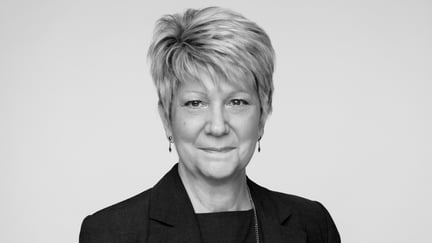A world first and a driver for growth from ASC certification
LFO was the first company in the world to have their blue mussels (Mytilus edulis) certified to the ASC’s bivalve standard, which has generated considerable interest in the Argyll-based firm.
Brown also believes that ASC certification will aid the firm's plans for growth. “We were surprised to be the first blue mussel producers globally to be ASC-certified,” he says, “but it’s fantastic. We’re really pleased and we’ve had a great response from our customers.”
This season we will produce around 450 tonnes, an increase on last year of over 30 per cent, and we expect this to grow to around 1,000 tonnes over the next 3 years
How we helped
Certification was carried out by LRQA, which acquired Edinburgh based Acoura at the end of 2016. Brown commented that he was also pleasantly surprised by the comparative ease and speed of the certification process, which took place at their site in Loch Roag, off the west coast of Lewis. “We were pretty confident that the way that we farm was quite close to what they were looking for, but it went remarkably smoothly,” he reflects. “The costliest element was the seabed analysis, but we had a lot of help for the underwater surveys from the Scottish Salmon Company, who also farm in Loch Roag – we’re both part-owned by Scottish Seafood Investment and their MD, Craig Anderson is also our Chairman, which helps encourage collaboration.”
Paul MacIntyre, Director of Aquaculture at LRQA worked closely with the team at LFO throughout their journey to ASC certification. “We congratulate all of the team at LFO for this significant achievement. The guiding principal behind Loch Fyne Oysters is to present the best in authentic Scottish seafood, whilst minimising their environmental impact and making a positive contribution to the community they are proud to call home. This is exemplified with their recent achievements of being the first company worldwide to be certified to the ASC Bivalve Standard for responsible farming of Blue Mussels (Mytilus Edulis) and we are proud to have helped them reach this significant milestone.”
Loch Fyne Oyster Farm

The impact
As a result of the experience, Brown believes that – at least for some fellow mussel growers – achieving certification would be a valuable goal, not just as a possible means of achieving adding value.
“Although there are additional costs associated with farming to such rigorous standards, ASC certification was not pursued as a means by which selling prices can be increased. However, this, in conjunction with other initiatives on packaging technology and distribution will make our mussels accessible to a wider and more discerning market where differentiation based on ethical farming is becoming increasing important,” he explains.
“It depends on your market but if, like us, you’re all about provenance, stewardship and sustainability – values shared by ASC – it’s very worthwhile, as our customers have been quick to point out,” he adds.
Certification and their increases in mussel landings seem to be vindicating the company’s recent change in production strategy – which saw them mothball their mussel sites in their traditional production area, Loch Fyne, in favour of concentrating on Loch Roag.
“We pulled out of Loch Fyne about 18 months ago – our sites there were right at the head of the loch, where the high volumes of fresh water coming in were slowing down mussel growth,” explains Cameron.
“As a result we moved all the equipment up to Loch Roag – a site which we took over about four years ago. This has enabled us to increase production there and we’re now looking to raise funds for a second workboat,” he says.
A wide range of seafood
As the Argyll-based company’s name suggests, mussels are not the only bivalve they produce, and moving their mussel ropes from Loch Fyne also helped to improve another aspect of their farming.
“The reason we moved the mussels from Loch Fyne – the low salinity – is better for oysters, as it gives them a sweeter taste,” says Cameron. “And they’re also growing quicker now that the mussels have been moved, as there’s more food available for them.”
This is one factor that has helped LFO to target an oyster production increase.
“We’re currently producing about 2.5 million [oyster] shells each year and, like mussels, are planning to increase production further over the coming years,” says Cameron. “We are also one of the few companies (perhaps the only one now) to hatch our own seed oysters from broodstock before growing in our nursery, down at Walney Island in the Lake District. We also supply 25-30 million of these seed oysters a year on a commercial basis to many farmers around the Scottish coast who then grow them on to market size.”
“We’re also looking to produce more native oysters (Ostrea edulis) at a new site on the west coast and we may look at further ASC certification for other aquaculture activities in the future,” he adds.
The benefits of sustainable fisheries and fish farming and the need to mitigate the environmental impacts of fishing and aquaculture are increasingly in the public consciousness
Robust assurance to drive seafood safety and sustainability
As stated on LFO’s website, all the company's salmon products are also responsibly grown or sourced exclusively from Global GAP approved farms on Loch Fyne and elsewhere in Scotland, ensuring that we support the highest farming standards, including full traceability throughout the supply chain.
“The benefits of sustainable fisheries and fish farming and the need to mitigate the environmental impacts of fishing and aquaculture are increasingly in the public consciousness,” said MacIntyre. “Combine this with the globalisation of food chains and suppliers, it is clear that the complexity and potential risks of the seafood product business has increased.”
With manufacturers being responsible for health risks and fraud arising from their products, they need to ensure traceability of raw materials throughout the supply chain. For seafood producers, it is important to meet the safety, quality and social compliance requirements of manufacturers – and indeed the consumer – who wants to know that the seafood they eat is safe and sustainably sourced.
“As a result, the role of assurance in the quest for seafood safety and sustainability has never been clearer; robust assurance is the common thread that links the challenges facing organisations today and helps build a sustainable future for us all,” summarised MacIntyre.
This article first appeared on The Fish Site



